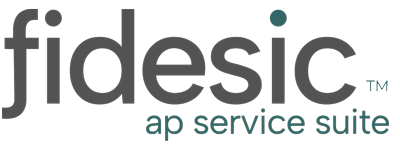Outsource Accounts Payable Processes? Pros and Cons
Over the last 10 years, businesses have shown more interest in the ability to outsource the accounts payable process, and that interest has only grown among small businesses during the pandemic, according to Pymnts.com.
“It is in times of disruption that an evolving market moves forward at an accelerated pace,” said the Pymnts article. “We are definitely in one of those market inflection points, where a typically conservative approach to the payments landscape needs some immediate solutions.”
But businesses should consider the benefits of in-house accounting before outsourcing their process, according to Clutch research.
“Small businesses considering in-house accounting will benefit from the personalized services and increased confidentiality,” said a Clutch press release, which also said 62% of SMBs have in-house accounting.
Related: What if Accounts Payable was a Service?
What Is Accounts Payable Outsourcing?
When a business outsources accounts payable processes, they pay a third-party company to manage, and process invoices, and pay vendors. Most companies that offer accounts payable outsourcing services also offer optimization of the AP process.
Who Is best Suited to Outsource their Accounts Payable Process?
In most cases, business who are likely to outsource their accounts payable are startups who plan to hire AP teams down the road, SMBs struggling to keep up with accounting processes, companies that do not have heavy compliance requirements and companies who don't want to hire accounting staff for a variety of reasons, including perceived cost savings.
You may also like: What is Multi-Locational Accounts Payable?
Pros and Cons of Outsourcing Accounts Payable
Depending on your current systems and requirements, the benefits of choosing to outsource accounts payable processes may have a variety of benefits. There are several other drawbacks to consider as well. Let's check out some Pros and Cons:
Pros
- Possibly Reduce Costs – For startups, it is possible to reduce upfront expenses associated with hiring, onboarding and training an AP team. Paying that team's salaries and benefits might also outweigh the cost of the AP outsourcing services.
- Insights—Many providers of accounts payable outsourcing will also offer reporting on key performance indicators like cost-per-invoice, time-per-invoice, etc.
- Improve Technology—If you are still using outdated technology or have a paper-heavy accounts payable process, an outsourcing provider may be able to help streamline your process with the technology resources they already have in place.
- Security & Accountability—When accounting leaders serve multiple roles in a business, a high-volume process like AP processing, which is historically vulnerable to fraud, is difficult to secure. Audit traceability is also difficult to maintain. Most outsourcing providers will boast their security and tracking as a core competency.
- Reduce Errors—AP is an error-prone process. A business may benefit from error reduction by choosing to outsource the accounts payable process.
Cons
- Lack of Control—As with any process you outsource, you are letting go a degree of control. Companies with data driven business models, certain compliance requirements or complex accounting environments might not be the best candidate for an outsourced accounts payable process. It will be important to discuss data ownership with any outsourcing provider.
- Privacy—Whenever outsourcing a critical process be sure your vendor's privacy standards meet your own.
- Overdependency—When you hand over a critical process like AP to a third party, you become reliant upon them. If their operations suffer a crisis your bills are at risk of being paid late or goin unpaid.
- Errors & Exceptions—While most AP outsourcing providers should offer reduced errors and exceptions, they still happen. When you outsource the accounts payable process you may not have the ability to review them properly or it may take longer and delay invoices. This will depend on the service level and quality the vendor provides.
- Vendor Relationships—Theoretically, an outsourcing vendor will help you pay on time and support vendor relations, but it does create a layer of abstraction between you and your vendors which could lead to complications down the road.
- Duplicate Entries—If you are changing processes or operating with multiple locations, it is important to educate your team on new processes when outsourcing accounts payable to avoid duplicate entries.
Should I Outsource Accounts Payable Process or to Automate?
We are AP automation providers, so of course we think it's a great option for businesses, but not without good reasons.
What we try to do at Fidesic is make your process so easy you feel like it's a service while maintaining control.
As mentioned above, cost savings are a key motivation to outsource accounts payable processes. The same is true for AP automation which is proven to reduce the cost of processing an invoice up to 80% over manual processing.
Additionally, AP automation offers many of the same benefits as outsourcing: Reduced time spent processing invoices, fewer errors, better insights, smoother accounting processes and better security.
Suggested: 5 Ways to Modernize Office Decor to Boost Productivity
What AP Automation Does Better than AP Outsourcing
- More Control
- More Flexibility
- Better Visibility & Availability of Data
- More Privacy
- Better Audit-tracking
- Tighter Security
Who is the best fit for Outsourcing Payables Processes?
When you outsource accounts payable, the provider handles everything. This is why startups and businesses who want little-to-no AP staff are best suited to outsource accounts payable. Startups can hire their full accounting team later and implement an AP automation solution then.
Who is the best fit for Accounts Payable Automation?
With cloud and software-as-a-service, automation technology is now cost effective and practically effortless to maintain for businesses of any size. Multi-location businesses or businesses who want to grow with a lean accounting team are especially suited to AP automation. However, any business that spends too much time on invoice processing or suffers an AP headache every month-end should consider AP automation.
Final Conclusion
The role of the accounting function is changing. More businesses are recognizing the strategic value of the accounting department. AP automation software allows a business to gain the benefits of in-house accounting while providing valuable data tracking, and it frees up time to focus on more strategic tasks.
Find out how you can modernize and optimize Microsoft Dynamics GP.






